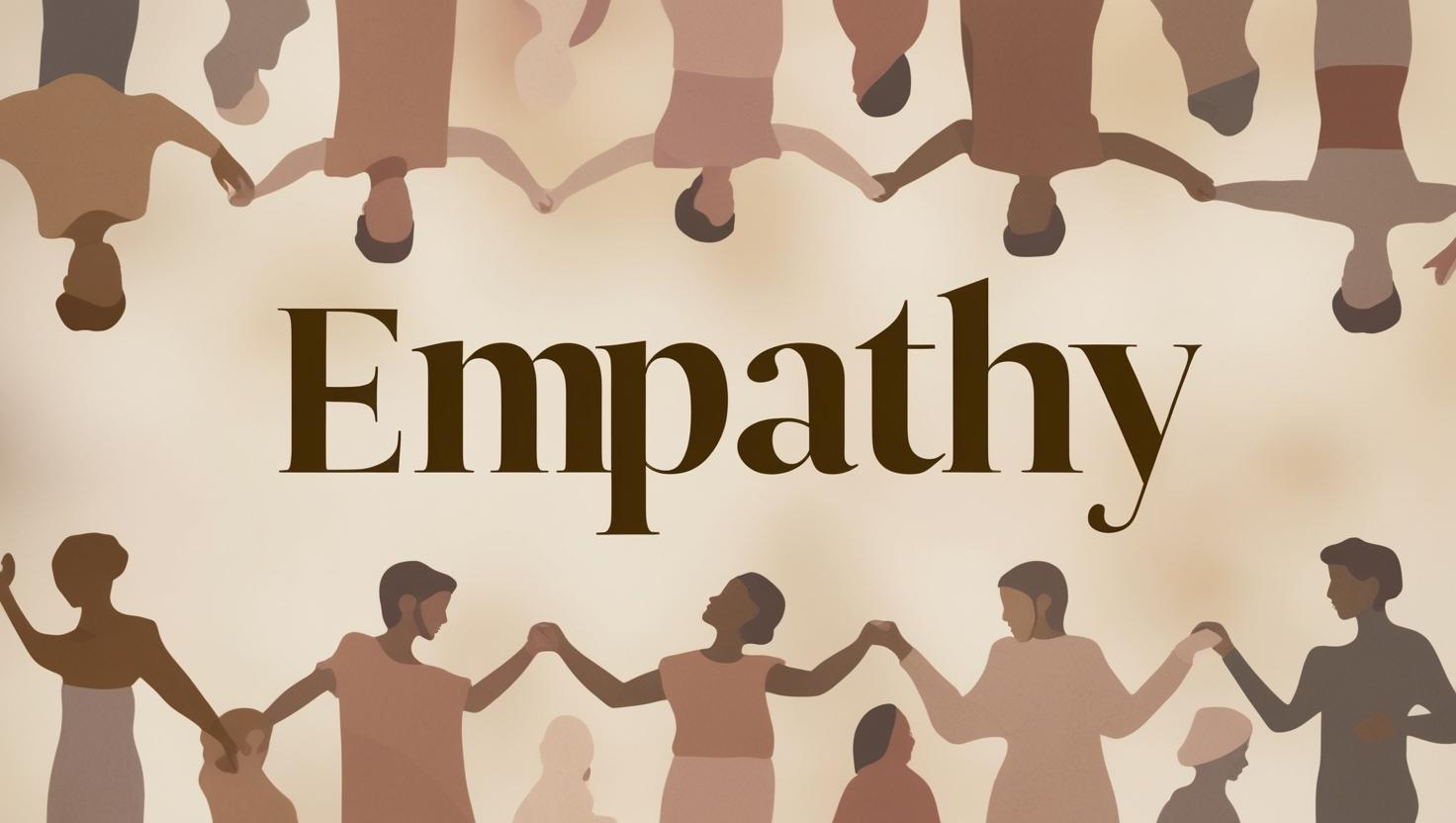❌Being nice is not being empathic.
Being nice is often about being polite, agreeable, and pleasant in your interactions with others. It usually involves following social norms, offering compliments, or avoiding conflict. The motivation behind being nice is often to maintain harmony, avoid upsetting others, or to be seen as well-mannered. It may be driven by a desire to please or keep things pleasant. Regarding behavior, it can include superficial gestures, like offering compliments, giving gifts, or acting friendly. Being nice can sometimes involve saying or doing what others want to hear, even if it’s not fully aligned with your own feelings or beliefs. The outcome of being nice can often create a positive atmosphere and smooth interactions, but it might not always lead to genuine understanding or deeper connections. Sometimes, it can even mask genuine emotions or avoid difficult conversations.
❓What is Empathy
Empathy is often described as the ability to understand and share another person’s feelings. In the medical field, empathy is not just about being kind; it’s a cornerstone of effective healthcare. From building trust with patients to improving clinical outcomes, empathy is a vital skill for every healthcare professional. However, empathy is often overlooked in favor of technical expertise. This post explores why empathy should be a core competency in medical education and how it directly impacts patient care.
· Definition: Empathy involves understanding and sharing the feelings of others. It’s the ability to put yourself in someone else’s shoes and respond with care, concern, and authenticity.
· Motivation: The motivation behind empathy is to truly connect with someone, to understand their emotional state, and to offer support or assistance that is attuned to their specific needs. It’s less about making others feel comfortable and more about providing genuine emotional support.
· Behavior: Being empathetic often involves active listening, validating others’ emotions, and responding in a way that acknowledges their feelings, even if you don’t agree with them or know how to fix the situation. It’s not just about saying what the other person wants to hear; it’s about being real and understanding.
· Outcome: Empathy often involves a deeper connection, mutual trust, and support. Empathy fosters genuine understanding and can lead to problem-solving that truly addresses someone’s emotional or psychological needs.
❤️ Why Empathy Matters The relationship between doctors and patients is central to the healing process. When patients feel understood and supported, they are more likely to engage in their treatment plan, adhere to prescribed medications, and return for follow-up care. Studies have shown that empathetic doctors are better at diagnosing, listening to concerns, and providing more comprehensive care. According to a 2022 study published in The Lancet, “The Importance of Empathy”, states appreciation of other people’s feelings and experiences as empathy. It is safe to say patients who experience empathy from their healthcare providers report higher satisfaction, fewer complaints, and better overall health outcomes.
Empathy also helps doctors build rapport with patients, which can alleviate anxiety and help with more accurate diagnoses. As healthcare becomes increasingly patient-centered, the ability to understand a patient’s emotional and psychological state is just as important as their physical symptoms.
🔑 Key Differences Between Being Nice and Being Empathic:
1. Surface vs. Depth: Being nice can sometimes be more superficial or surface-level, focusing on making someone feel good temporarily. Empathy, on the other hand, digs deeper into understanding someone’s emotions and responding in a meaningful way.
2. Intent: Being nice is often motivated by wanting to please or avoid conflict. Empathy is motivated by a genuine desire to understand and support the other person, regardless of the discomfort it might bring.
3. Emotional Engagement: Being nice can sometimes be detached, while empathy requires emotional engagement and often involves discomfort as you connect with someone’s feelings.
4. Authenticity: Empathy tends to be more authentic because it involves genuine connection and sometimes difficult truths while being nice can occasionally involve pretending to be okay or saying things just to keep things smooth.
🫂The Impact on Patient Trust and CareA lack of empathy can have serious consequences. Without empathy, patients may feel neglected or misunderstood, which could lead to a breakdown in communication, mistrust, and even a reluctance to seek care. On the other hand, a healthcare provider who demonstrates empathy can help patients feel valued and heard, ultimately contributing to more effective care.
One of the most significant ways empathy enhances patient care is by improving communication. When doctors are empathetic, patients are more likely to open up about their symptoms and concerns, leading to better, more accurate diagnoses. Furthermore, patients who feel their healthcare providers truly care about their well-being are more likely to follow through with their treatment plans.
Example:
· Being Nice: When you notice a colleague is stressed, you tell them, “Don’t worry; everything will be fine,” and try to lighten the mood.
· Being Empathetic: You notice a colleague is stressed, and you take the time to listen, saying, “I can see you’re feeling overwhelmed. Want to talk about it? I’m here to listen.”
🌃At the end of the day, being nice is about creating pleasant interactions and avoiding conflict, whereas being empathetic is about truly understanding and connecting with someone’s emotional experience. Empathy often leads to more meaningful, deeper connections and a greater sense of support.
Medical schools must prioritize teaching empathy alongside clinical skills. By integrating empathy into medical education, we can develop healthcare professionals who not only possess technical expertise but also demonstrate the emotional intelligence needed to provide high-quality, compassionate care. Empathy should not be seen as a supplementary skill. Empathy is a core competency that enhances the entire healthcare experience.
Let us normalize empathy in medicine, across the globe.
#Leadership #Education #MedEd #Empathy



Leave a Reply
You must be logged in to post a comment.